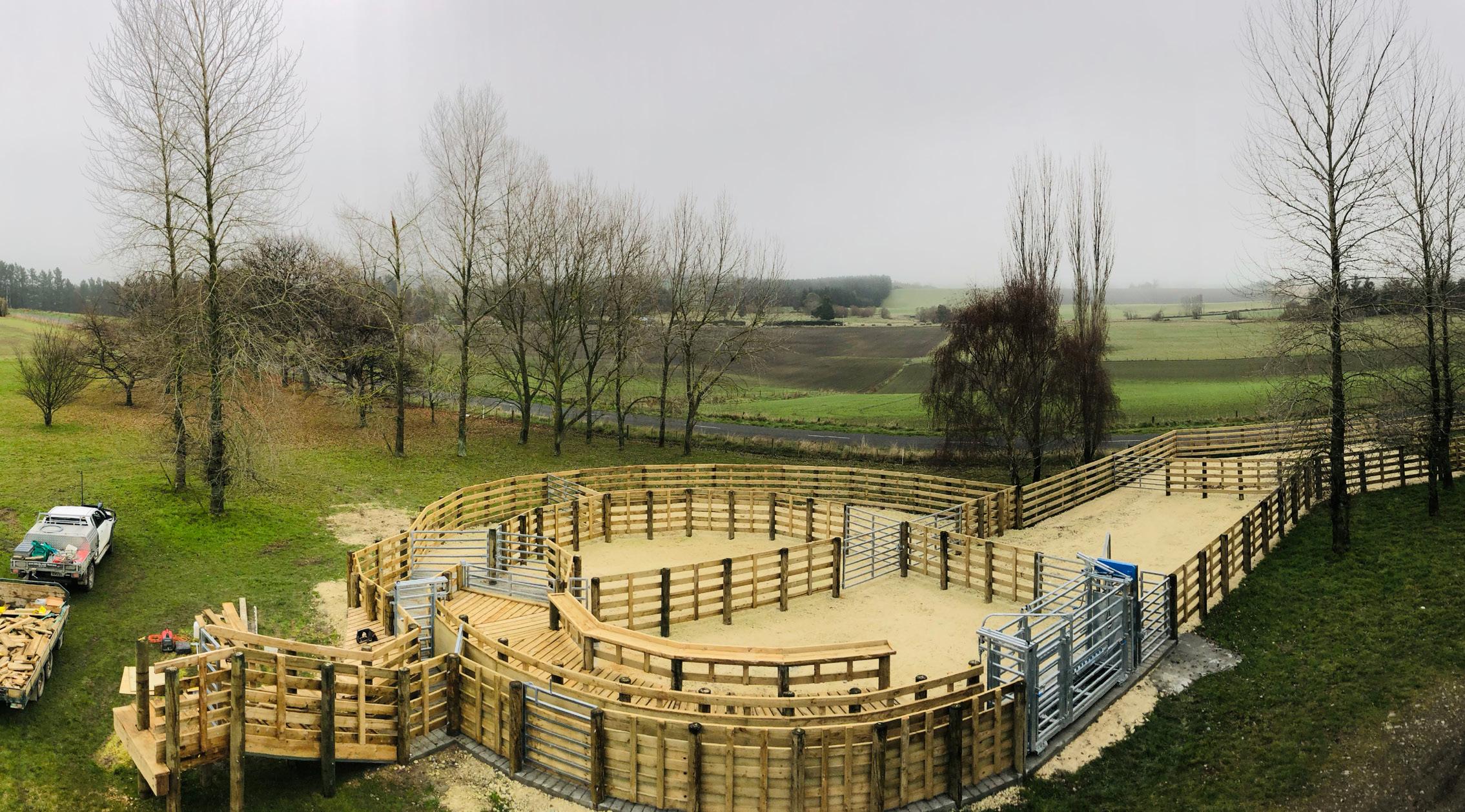
2 minute read
High-level workmanship speaks for itself
Dan Douglass (Dan Douglass Fencing) has been fencing for the past decade, covering the South Canterbury and Mackenzie Country. His clientele are predominantly dry stock, sheep and deer farmers.
Dan’s cattle yards have received an enthusiastic response on Facebook, with a high-level of workmanship being evident. The photographed set accompanying this article was built just down the road from Dan’s house, big enough for 400 head on what is not that large a farm. The client liked a set built over 20 years ago and Dan replicated the basic design with improvements.
Advertisement
Stockwork when younger helped to establish what layouts worked well and the angles required in raceways “what worked and what didn’t”. Normally Dan starts with a basic design that he draws up after talking with the client to see what they are seeking. But during the build process Dan is adaptable and open to changes, on this set he changed the angles to suit and also built a wide catwalk with a much appreciated wooden tray along the top rail for holding supplies. Dan leaves the catwalk to one of the last items he builds as it allows shorter timber lengths to be utilised.
Dan uses local earthwork companies – normally who the farmer uses – to carry out the site prep and put down a good base. This set had shingle plus 150mm lime chip.
Dan supplies materials on most of his contracts and the timber and posts for these yards were supplied by Point Timber and Hardware, who Dan finds are good to work with and whose pricing allows for some margin to the client while still providing a fair deal. Using 2.7 m 200 SED ‘cattle’ yard posts, the yard height was 1600mm, with 150 x 50mm screwed rail. Gates were made by a local engineering firm Agriboss Engineering. Concreting Dan does himself. The crush is a Te Pari cattlemaster.

Dan recently built another set of yards with a steel ramp; he sees this as a viable cost and build option. When first talking with clients he discusses the choice of steel or timber, and finds the majority chooses timber, one of the factors being noise.
Written by Debbie White












